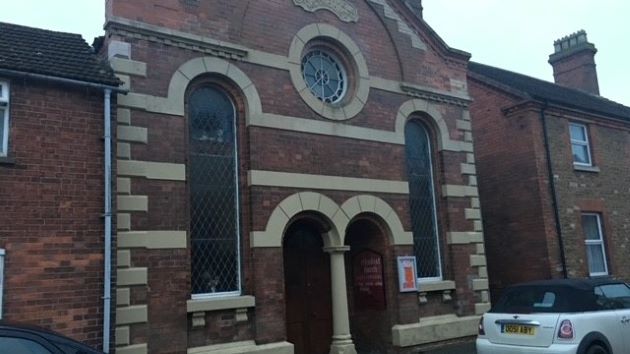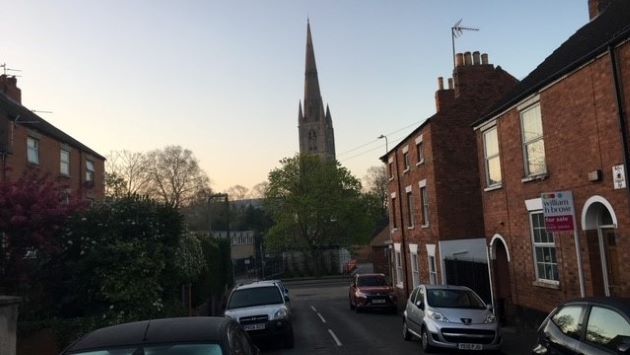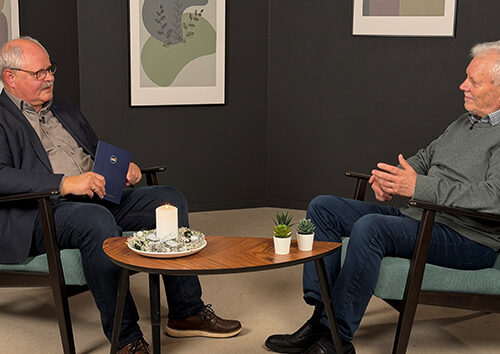01 December | St. Albans, UK [David Neal]
As I listened to the BBC news headline, “According to the 2021 UK census, the proportion of people who said they were Christian was 46.2%, down from 59.3% in the last census in 2011”, ¹ it was news that hit me like a bullet. While it was to be expected, due to the slow departure of the UK from Christianity since the 1960’s – hearing it confirmed created a significant sense of sadness and loss.
As someone raised British, my society has always been recognised as a Christian nation, with values deeply embedded in its laws and civil society. Even its head of state the late Queen, and now the King, also serve as the titular leader of the Church of England.

Let me assure you, this grief for my country is not the result of a personal struggle coming to terms with change, or the bemoaning of diversity – far from it. But there is an additional line in the census which causes futher distress which reads, “In contrast the number who said they had no religion, increased to 37.2% of the population, up from a quarter.” With the 2021 census reporting the total population of England and Wales to be 67.33 million, the staggering reality is that over 25 million people choose to live lives without God.
Perhaps contributing to this grief is also the death of the late Queen. In the strangest way, her life and witness as a Christian was a comforting assurance that the Christian voice in the UK would always be heard. Without doubt, news of these latest statistics will result in calls arguing for less airtime to hear ‘the Christian perspective’ – in parliament, in the media, and most painful of all in the education of children.
What if instead Christians were to Mesmerise?
Should I really be disturbed by the decline of Christianity in England? Perhaps not says Tim Farron (former political leader of the UK Liberal party), who in a recent article in the Church Times, provides a reminder of the rise of early Christianity.² “In its first 350 years”, says Farron, “the Early Church grew by 40 per cent every ten years. Christians washed feet, served, and lived in an opposite spirit to a Roman culture which said powerful people triumphed.” Farron continued, “The World was mesmerised because Christians loved their enemies and blessed those who persecuted them. God’s power was made perfect in their weaknesses.” And then he gives a surprisingly articulate reminder about what happened next. “Then, when Constantine became Emperor and converted to Christianity, the church became a political institution which tried to coerce everyone to obey its rules. That’s when things started to go wrong.”

Farron’s perspective is a great reminder that the challenge for the Christian voice to be heard is not new, because it is the story of the Early church as they consistently struggled to get their voice heard. They were the odd bods, the outcasts, the low life in society. From the perspective of the great and the good in Jerusalem, Antioch, Athens, and Rome – ‘Who were these people’?
A people with a heavily dependent Holy Spirit-led story
“These people”, have given us an example of how to live, think and act missionally in a pagan society. Their story is told from Acts to Revelation in scripture. I note carefully and cautiously that their story is a heavily dependent Holy Spirit-led story. And here is the upshot for not only Adventists in the UK, Ireland – but also for the many Trans-European Division (TED) members of countries with similar population demographics. As our nations become ever more secular, there is a real and present danger that the church also drifts towards secularism.
Don’t take my word for it, but rather something John Paulien noted a few decades ago in his book “Present Truth in the Real world”.³ His line of argument is that the first habit of the Christ-follower to fall to secularisation is the decline of the personal prayer life. Note – not in the life of the secular person, but in the life of the Christian! And with this, is a decreasing lack of trust in the power of prayer. The result is that we begin to question (or even feel the need for) the supernatural power of the Holy Spirit to be the driving force in our personal and collective missional lives. And yet, it is this same Holy Spirit who hovers over every person, every family, every hamlet, village, town, city and nation, seeking to prompt the hearts and minds of people created in His image, and for with whom he desperately wants to reconnect – if only we will let him.

Rising beyond the human perspective
From the human perspective, I am totally convinced that Christianity in the UK and Ireland, and in most of Europe is as they say, ‘heading south’ and the light will go out. The demographic trends seem far too strong to turn around.
All I believe to be left, is for the supernatural and miraculous power of the Holy Spirit to turn things around – as we work in partnership with Him. It is a partnership which invites us to use all our creative and imaginative thinking, to reform ‘how we do church and mission’, to live as Farron reminds, ‘in a spirit opposite to the culture around us’, including a passionate and determined commitment to reach secular Brits and Europeans at their level, communicating in language they understand, but laced in word and deed, with the beauty and grace of the Lord Jesus Christ. It is then, and I believe only then, that an Acts 2 experience can happen again in the lands where you and I live.
¹ Less than half of England and Wales population Christian, Census 2021 shows, BBC News, 29 November 2022.
² Tim Farron: Christian principles in jeopardy at the heart of politics, Church Times, 11 November 2022.
³ Present Truth in the Real World: The Adventists Struggle to Keep and Share Faith in a Secular Society, Jon Paulien, January 1993.
[Lead and study group picture: Shutterstock. Grantham pictures: David Neal]



